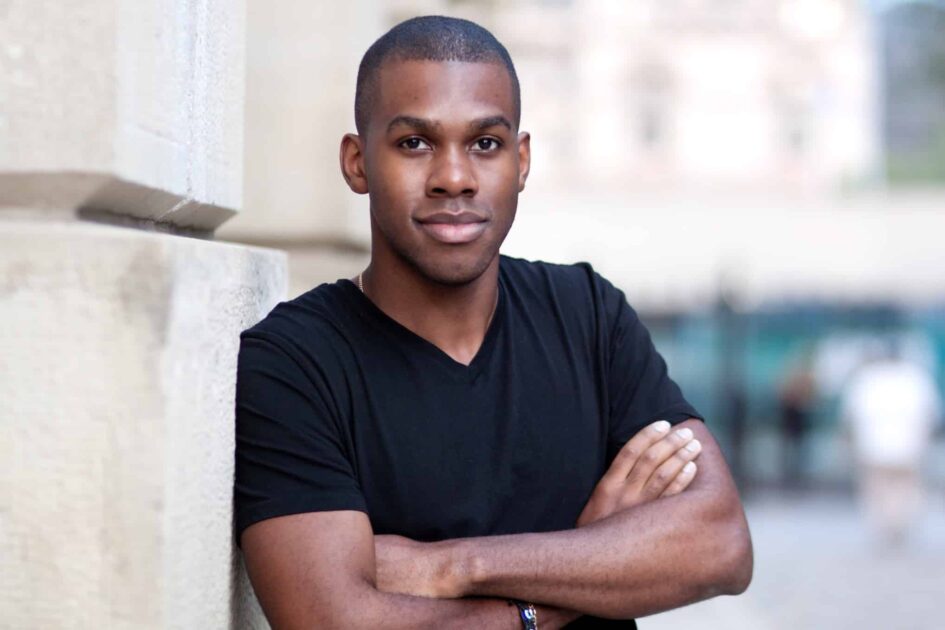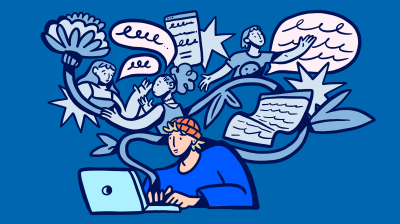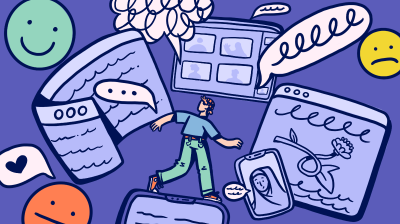Black Therapists Ireland on dealing with racism
Psychotherapist Ejiro Ogbevoen talks about the impact of racism on mental health

SpunOut.ie Action Panel member Rebecca Adeyemo interviewed Psychotherapist and founder of Black Therapists Ireland Ejiro Ogbevoen about taking care of your mental health as a person from an ethnic minority background living in Ireland.
Dealing with the impact of racism on mental health
Rebecca: What can a young person do if they feel like racism or discrimination is affecting their mental health?
Ejiro:
That’s a very big one, and that’s a huge struggle for a lot of black people and people of colour. Yes, racism is affecting people’s mental health. You’ve got to talk to somebody. If you are a young person and you feel really strongly impacted by what’s going on around you, it’s important you talk to somebody and that’s where a black therapist will probably be the best person to talk to.
Once you get this feeling of racism against you, you may not want to speak to a white therapist, and this is not true for everybody. I have worked with so many amazing people who are white therapists. It’s not that they cannot do the work with black people, it’s more that we as black people come to the table feeling they won’t understand us.
That’s why we may find it difficult to go to a white therapist or a caucasian therapist or a therapist that doesn’t understand where we’re coming from. If you’re struggling with racism, micro-aggression or if your environment isn’t conducive, speak to somebody so that you can put things in place to support your mental health. Nobody needs to suffer.
But if you don’t know what to do, then the suffering continues. So as a young person don’t accept it as “Well, this is how things are”, “This is what happens”, you know, I mean, “I’m in Ireland, what do I expect”. No, that it’s not on, but it has to start from you. And I want you to be the person to make that difference. It’s not about saying to the caucasian person or the people around that it’s not ok, it’s more like I respect myself enough that I will not entertain this kind of behaviour.
And once you begin to respect yourself and hold yourself up then people respect you. I want us to come from that space that it’s not acceptable for anyone to be suffering because of the colour of their skin, because of their sex or because of their sexuality. It doesn’t matter what the discrimination is. It’s not on. Speak to somebody, get the support you need. Step away from that “Well, that’s the way it is” because that’s not the way it is. We can make a difference, but it will start from you.
How to handle feelings of imposter syndrome
Rebecca: Would you have any recommendations on how to deal with imposter syndrome as a young person from a minority ethnic background?
Ejiro:
Imposter syndrome! Geniuses thinking that they’re not good enough, that’s what imposter syndrome is. For each and every one of us trying to do something, try to make a difference, there’s a time that you will be in bed and be like, “Oh, my God if only they knew”. At that point where you hear that “I’m not good enough”, that’s when you take a deep breath and say to yourself, “I’m making a difference, that’s all I want to do”.
And the only way is for you to first convince yourself, because when it comes to it nobody but you sees it, nobody hears it. These words that you say to yourself in your bed or in your head in front of people just as you are about to speak. You’re like, “Oh, my God, what do they think of me?”. No, they don’t know these things that’s going on in your head.
When you begin to doubt yourself, take a moment, take a few deep breaths and remind yourself why you started this journey, whatever that journey is, if you can back yourself up you’ll be good to go.
Read more of our articles from Black Therapists Ireland:
- Mental health advice from Black Therapists Ireland
- Black Therapists Ireland: How to talk to your parents
Mental health supports you might be interested in:
Feeling overwhelmed and want to talk to someone?
- Get anonymous support 24/7 with our text message support service
- Connect with a trained volunteer who will listen to you, and help you to move forward feeling better
- Whatsapp us now or free-text SPUNOUT to 50808 to begin.
- Find out more about our text message support service
If you are a customer of the 48 or An Post network or cannot get through using the ‘50808’ short code please text HELLO to 086 1800 280 (standard message rates may apply). Some smaller networks do not support short codes like ‘50808’.






